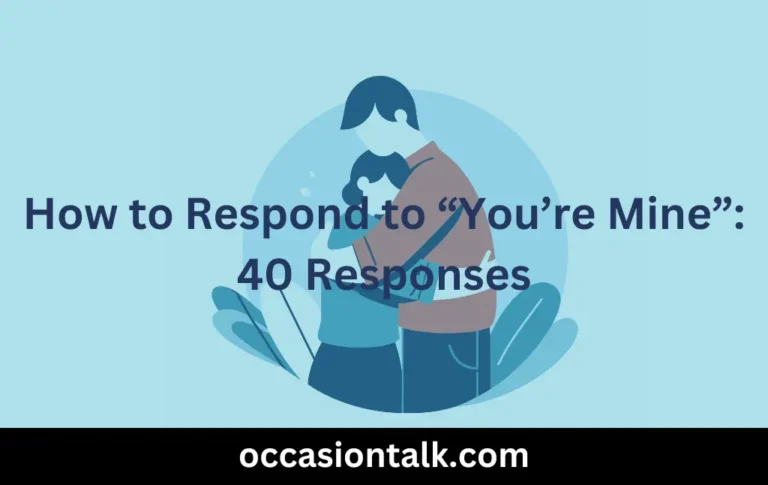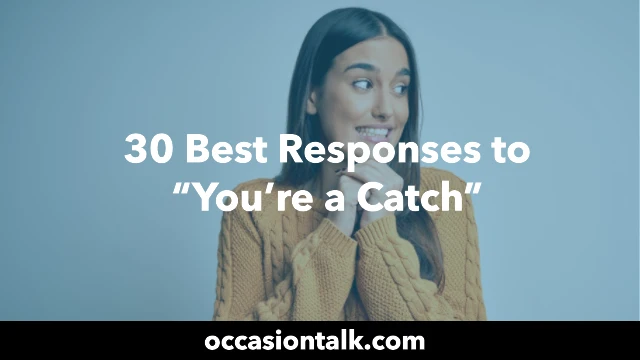20 Where do you Stay Replies?
It’s not uncommon to receive a casual question like “Where do you stay?” during a conversation.
While it might seem like a simple inquiry about your living arrangements, this question can sometimes put you on the spot, especially if you value your privacy or just aren’t sure how much information to share.
A well-crafted response to “Where do you stay?” should balance openness with discretion.
The key is to acknowledge the question without compromising your comfort.
You might even use the opportunity to steer the conversation in a direction that you find more agreeable.

Below is a list of 20 responses to help you navigate this question easily and confidently.
How to answer where do you stay question
When someone asks you, “Where do you stay?“, they might simply be making conversation or they could be prying into your personal life.
If you prefer to keep your residence private, there are tactful ways to deflect the question. Below are several strategies you might employ.
Reflect the Question
A gentle, yet effective method is to mirror the question back to the inquirer.
- Smile and Respond: Start with a smile and respond, “Why do you ask?” This often prompts the person to reveal the intention behind their question.
Use Open-Ended Queries
If the conversation continues, you can maintain control with open-ended questions.
- Continue the inquiry: If they say something non-committal like, “Oh, just wondering,” you can keep the conversation light while still not revealing any information by asking, “Why?”
- Probe their intent: Should they express curiosity about your proximity, such as, “I wondered if you lived nearby,” a non-confrontational retort would be “Why? What difference does it make?”
Divert the Conversation
Sometimes, turning the conversation towards a different topic or outcome is the best strategy.
- Suggest alternatives: If the person is indirectly asking for a visit, you can respond with a light-hearted, “Why, are you planning to come over?” immediately followed by a change of topic or suggesting a neutral meeting place.
- Offer options: If they wish to give you something, suggest they send it to a “post office box or an office address.”
Non-specific Answers
Providing vague or humorous responses can also deflect further inquiry.
- Express impermanence: If appropriate, say something like, “I’m in the process of moving,” to imply that giving a direct answer isn’t possible.
- Mention travel habits: Respond with a light-hearted, “I don’t get many visitors,” suggesting that your home isn’t set up for company.
- Use humor: A humorous deflecting statement such as “I live in a van down by the river,”
Embrace Humor
Humor can serve as an effective shield while keeping the interaction friendly.
- Cultural quip: A playful but vague response like, “I’m an American,” can serve as a humorous, non-committal answer that can be particularly effective if there is a shared context or joke about Americans being nomadic or valuing privacy.
20 Responses to Where Do You Stay
- Currently in transit.
- I bounce around a lot.
- That’s personal information.
- In the city
- Planning to come over?
- From out of town
- I have a place, but I travel quite a bit for work.
- I usually crash at my friend’s place.
- Staying with family.
- I stay where the wind takes me.
- I’m a bit of a nomad.
- That’s on a need-to-know basis.
- It’s not very interesting (it’s complicated)
- I have a few places I call home.
- Don’t think I’ve settled in one spot for long
- I prefer to keep some mystery about me.
- I stay where I lay my hat.
- Someplace on the East Coast.
- I split my time between a few places.
- In between places at the moment.
You can also check: How To Respond to Are You Free
General Tips
Here are some additional tips for maneuvering such personal inquiries:
- Confidence matters: Respond with confidence, no matter which tactic you choose. If you appear comfortable with the conversation, people are less likely to probe.
- Privacy is your right: Remember that you are not obligated to share personal information. If you prefer not to disclose your living situation, that’s entirely within your rights.
- Non-verbal cues count: Maintain a friendly demeanor. Non-verbal cues, such as smiling and making eye contact, can help to soften your response.
- Be prepared: Think about these scenarios in advance so you’re not caught off guard. Having a ready-made answer can prevent awkwardness.
RELATED:
- 45 Ways to Ask Someone if they are Free to Meet You
- How to Respond to “WYS” Texts
- How to Reply When Someone Says What’s Up
- How to Respond to Yo
Final Thoughts
Mastering the art of privacy while engaging in conversation is a social skill that can be learned.
By using reflective questions, open-ended queries, diversion, non-specific answers, humor, and general conversational tactics, you can protect your private information without offending.
It’s always your choice how much you choose to disclose about your personal life, and using these strategies can help you maintain that boundary with grace.






